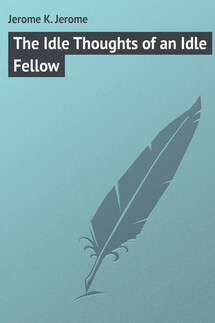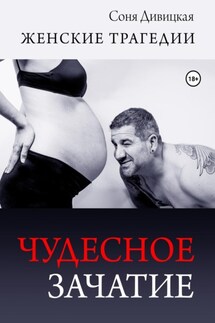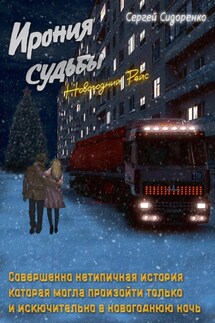Three Men on the Bummel - страница 11
Meanwhile, Harris continued his ride with much enjoyment. It seemed to him that he had suddenly become a stronger, and in every way a more capable cyclist. Said he to what he thought was Mrs. Harris:
"I haven’t felt this machine so light for months. It’s this air, I think; it’s doing me good."
Then he told her not to be afraid, and he would show her how fast he could go. He bent down over the handles, and put his heart into his work. The bicycle bounded over the road like a thing of life; farmhouses and churches, dogs and chickens came to him and passed. Old folks stood and gazed at him, the children cheered him.
In this way he sped merrily onward for about five miles. Then, as he explains it, the feeling began to grow upon him that something was wrong. He was not surprised at the silence; the wind was blowing strongly, and the machine was rattling a good deal. It was a sense of void that came upon him. He stretched out his hand behind him, and felt; there was nothing there but space. He jumped, or rather fell off, and looked back up the road; it stretched white and straight through the dark wood, and not a living soul could be seen upon it. He remounted, and rode back up the hill. In ten minutes he came to where the road broke into four; there he dismounted and tried to remember which fork he had come down.
While he was deliberating a man passed, sitting sideways on a horse. Harris stopped him, and explained to him that he had lost his wife. The man appeared to be neither surprised nor sorry for him. While they were talking another farmer came along, to whom the first man explained the matter, not as an accident, but as a good story. What appeared to surprise the second man most was that Harris should be making a fuss about the thing. He could get no sense out of either of them, and cursing them he mounted his machine again, and took the middle road on chance. Half – way up, he came upon a party of two young women with one young man between them. They appeared to be making the most of him. He asked them if they had seen his wife. They asked him what she was like. He did not know enough Dutch to describe her properly; all he could tell them was she was a very beautiful woman, of medium size. Evidently this did not satisfy them, the description was too general; any man could say that, and by this means perhaps get possession of a wife that did not belong to him. They asked him how she was dressed; for the life of him he could not recollect.
I doubt if any man could tell how any woman was dressed ten minutes after he had left her. He recollected a blue skirt, and then there was something that carried the dress on, as it were, up to the neck. Possibly, this may have been a blouse; he retained a dim vision of a belt; but what sort of a blouse? Was it green, or yellow, or blue? Had it a collar, or was it fastened with a bow? Were there feathers in her hat, or flowers? Or was it a hat at all? He dared not say, for fear of making a mistake and being sent miles after the wrong party. The two young women giggled, which in his then state of mind irritated Harris. The young man, who appeared anxious to get rid of him, suggested the police station at the next town. Harris made his way there. The police gave him a piece of paper, and told him to write down a full description of his wife, together with details of when and where he had lost her. He did not know where he had lost her; all he could tell them was the name of the village where he had lunched. He knew he had her with him then, and that they had started from there together.








